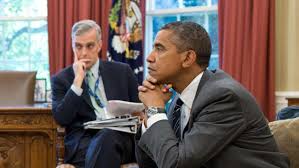A couple of unfortunate ways of thinking about terrorism continue to plague discourse about the subject and create a political environment that encourages destructive policy responses. One is to conceive terrorism not as what it really is — a tactic — but instead as an identifiable group of bad actors: “the terrorists.”
These bad guys are thought of as, if not having a permanently fixed number, then at least having identifiable limits that separate them from everyone else. Wipe out the bad guys, goes the thinking, and you’ve wiped out the terrorism problem.
The other common habit of thinking is to identify international terrorism with whatever named group has most captured our attention and elicited our fears. This used to be Al Qaeda; now Al Qaeda has been eclipsed to a large degree by the so-called Islamic State or ISIS. Once we become familiar with a scary name, invocation of the name anywhere triggers an impulse on our part to use force to wipe out more bad guys. This pattern of thought tends to confuse a name with an organization, and it reifies more of an octopus-like transnational organization than really exists.

